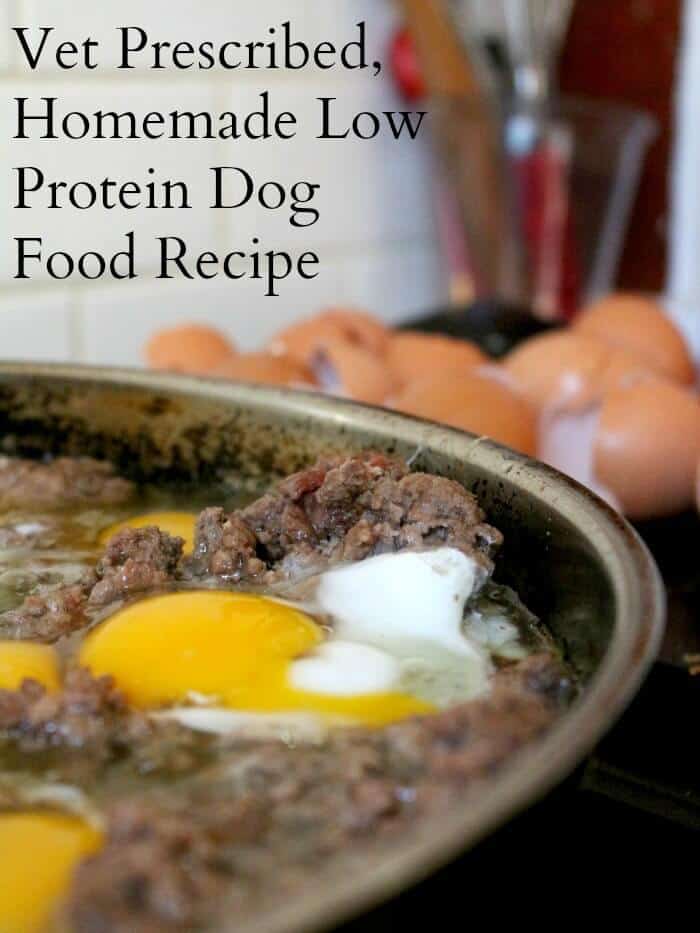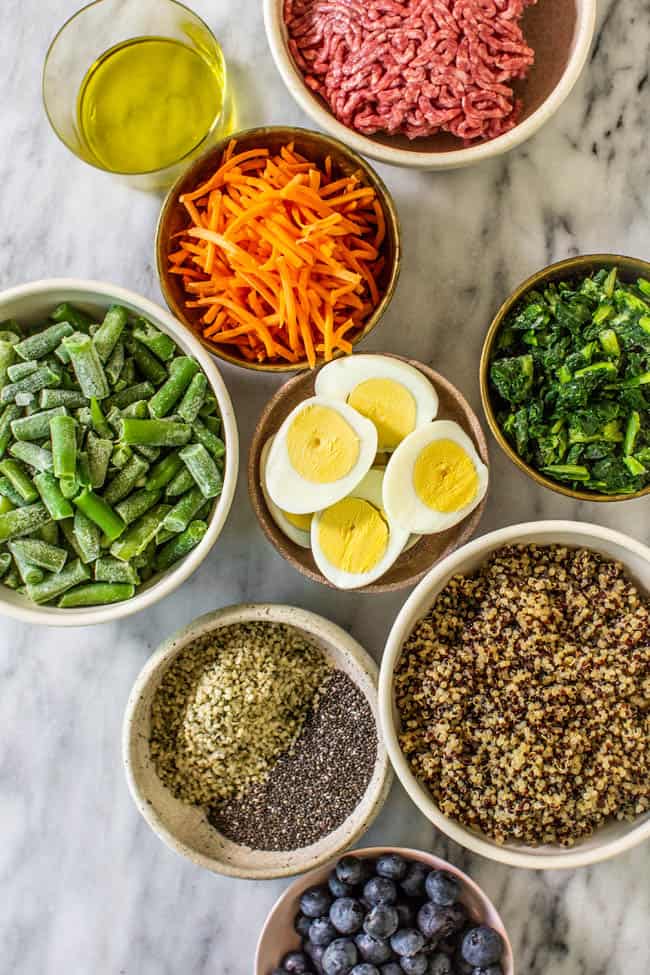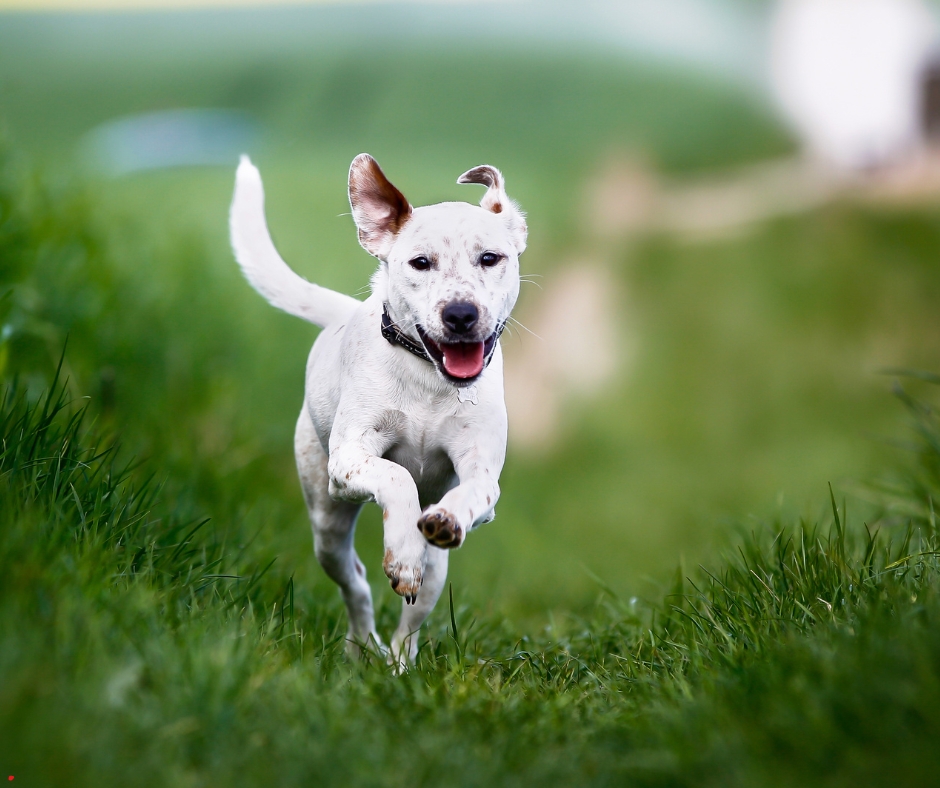Homemade dog food recipes vet-approved for senior dogs call for particular attention. With age, their nutritional requirements evolve.
One can benefit from homemade dog food recipes vet-approved for senior dogs. Dogs aged more might have health problems. Often these problems call for a change in diet. Made from scratch lets you control nutrition and ingredients. It guarantees your elderly dog receives the greatest possible diet.
Vet-approved recipes guarantee your pet’s health and safety. You can steer clear of some commercial meals’ dangerous fillers and chemicals. Cooking food at home provides freshness and diversity as well. Older dogs with changing preferences may find this attractive. All set to discover more about making healthy dinners for your senior dog? Easy, homemade dog food recipes vet-approved for senior dogs to keep your pet buddy happy and healthy will be available to you from this book.

Importance Of Homemade Dog Food
Our dear canines have different nutritional requirements as they get older. Especially for elderly dogs, homemade dog food recipes vet-approved for senior dogs can offer customised nutrition. It lets you manage the quality of the components, therefore guaranteeing your dog gets the finest treatment available. Preservatives and fillers included in many commercial dog meals might not be best for older canines. Cooking meals at home helps you eliminate these needless extras.
Homemade dog food recipes vet-approved for senior dogs also give you the freedom to modify meals depending on the particular health issues of your dog. This can cover weight control, food allergies, or joint problems. Stressing fresh, natural foods will help your dog be more healthy overall.
Benefits For Senior Dogs
Some times, senior dogs deal with different medical issues. Homemade dog food recipes vet-approved for senior dogs can solve these problems very successfully. Among the advantages are:
- Better digestion: Fresh foods digest more readily.
- Better Nutrient Absorption: Custom recipes can satisfy certain dietary requirements, therefore improving the absorption of nutrients.
- Weight Management: Control your portions to keep your weight in line.
- Joint Health: Add vitamins for joint support like glucosamine.
- Allergy Management: Choose safe ingredients to avoid allergies.
Vet Recommendations
After going to homemade dog food, you really should see a veterinarian. Given the health of your dog, they can offer tailored recommendations. Here are some general suggestions:
- Balance: Make sure meals balance proteins, carbohydrates, and fats.
- Supplements: Add required minerals and vitamins.
- Portion Control: Use vet recommendations on sizes.
- Regular Check-ups: See your dog’s health often.
Veterinarians might also provide particular recipes or ingredient recommendations. This guarantees that your dog will eat tasteful and healthy food.
| Nutrient | Sources | Benefits |
|---|---|---|
| Protein | Chicken, Beef, Fish | Muscle Maintenance |
| Carbohydrates | Rice, Sweet Potatoes | Energy |
| Fats | Fish Oil, Olive Oil | Skin and Coat Health |
| Fiber | Vegetables, Fruits | Digestive Health |

Senior Dog Nutritional Needs
Dogs’ dietary demands fluctuate with age. Senior dogs need a balanced diet if they are to stay healthy and active. homemade dog food recipes vet-approved for senior dogs might assist in meeting older dogs’ dietary requirements. To guarantee elderly dogs receive the greatest treatment, one must be aware of their basic nutrients and typical shortages.
Essential Nutrients
Senior dogs require certain nutrition if they are to remain healthy. These encompass:
- Protein: Boosts immune system and preserves muscular mass.
- Omega-3 fatty acids help brain function and lower inflammation.
- Fiber helps digest food and stops constipation.
- Antioxidants help the immune system and guard against harm to cells.
- Vitamins and minerals will help to guarantee general wellness.
Senior dogs kept active and healthy by a balanced diet including these nutrients will also benefit.
Common Deficiencies
Senior dogs are more likely to have certain nutritional deficits. These can compromise their quality of life and general health. Typical shortcomings are:
- Vitamin E: Crucially for the condition of coats and skin.
- Vitamin B12 helps energy levels and neurological function.
- Zinc is essential for the immune system and skin health.
- Calcium: keeps bones strong and helps against osteoporosis.
Put a range of nutrient-dense foods in your dog’s diet to help avoid these deficits.
The short table below lists the key nutrients together with their sources:
| Nutrient | Sources |
|---|---|
| Protein | Chicken, beef, fish |
| Omega-3 fatty acids | Fish oil, flaxseed oil |
| Fiber | Vegetables, brown rice, oats |
| Antioxidants | Blueberries, spinach, carrots |
| Vitamins and minerals | Organ meats, eggs, leafy greens |
Knowing senior dogs’ dietary requirements helps one create well-balanced homemade dog food recipes. Always see a veterinarian to make sure your dog’s food satisfies their particular needs.
Safety Tips For Preparing Dog Food
Making homemade dog food recipes vet-approved for senior dogs for elderly dogs calls particular care. For your dog to obtain the optimum nutrients, safety is absolutely vital. This section will clarify important safety precautions for home dog food preparation.
Avoid Harmful Ingredients
Dogs should not eat some things. Never use these components always.
- Chocolate: Dogs find theobromine in it to be poisonous.
- Grapes and raisins: Kidney failure can result from grapes and raisins.
- Onions and garlic might harm red blood cells.
- Avocado contains persin, which could lead to diarrhea and vomiting.
- Xylitol: One sugar alternative that could induce liver failure and insulin release.
Before cooking, always review for dangerous components. See your veterinarian if uncertain.
Proper Food Handling
Contamination cannot be avoided without proper food handling. Using these guidelines:
- Wash your hands always, both before and after handling dog food.
- Clean utensils and all surfaces with hot, soapy water.
- Store Food Right: Immediately refrigerate perishable items. Store items in sealed containers.
- Avoid cross-contamination: contamination by separating raw meat from other meals.
- Cook meat thoroughly such that it reaches a safe temperature to destroy germs.
These guidelines will help you to guarantee the health and safety of your dog’s diet.
Simple Homemade Recipes
Making nutritious, homemade dog food recipes vet-approved for senior dogs can be a rewarding experience. These easy, vet-approved dishes guarantee your pet receives the necessary nutrients. Your senior dog will adore two simple dishes below.
Chicken And Rice Delight
Simple but nutrient-dense this dish is. For a senior dog, chicken and rice are mild on their stomach.
- Ingredients:
- 1 cup cooked chicken breast, shredded
- 1/2 cup cooked brown rice
- 1/2 cup steamed carrots, chopped
- 1/4 cup green beans, steamed and chopped
- 1 tablespoon olive oil
Instructions:
- Cook the chicken breast and shred it into small pieces.
- Cook the brown rice according to package instructions.
- Steam the carrots and green beans until tender.
- Mix all ingredients in a large bowl.
- Drizzle with olive oil and stir well.
- Serve at room temperature.
| Nutrient | Amount per Serving |
|---|---|
| Protein | 20g |
| Fat | 10g |
| Carbohydrates | 30g |
| Fiber | 5g |
Beef And Vegetable Mix
This beef and vegetable mix provides essential vitamins and minerals. Ideal for maintaining your senior dog’s health.
- Ingredients:
- 1 cup ground beef, lean
- 1/2 cup sweet potatoes, mashed
- 1/2 cup peas, steamed
- 1/4 cup pumpkin puree
- 1 tablespoon flaxseed oil
Instructions:
- Cook the ground beef until fully done.
- Boil and mash the sweet potatoes.
- Steam the peas until tender.
- Mix all ingredients in a large bowl.
- Add the pumpkin puree and flaxseed oil.
- Stir until well combined.
- Serve at room temperature.
| Nutrient | Amount per Serving |
|---|---|
| Protein | 25g |
| Fat | 15g |
| Carbohydrates | 20g |
| Fiber | 6g |
Special Diets For Health Conditions
Dogs’ nutritional demands vary with age. Senior dogs may need particular meals catered to their medical issues. Making homemade dog food recipes may be a great approach to guaranteeing your elderly pet receives the nutrients required. Some vet-approved recipes, especially those meant for elderly dogs with special health issues, will be discussed below.
Low-fat Recipes
Weight control can be difficult for senior dogs. Low-fat dishes can support their wellness. Here’s a quick and wholesome low-fat dish:
| Ingredient | Amount |
|---|---|
| Lean ground turkey | 1 cup |
| Cooked brown rice | 1/2 cup |
| Chopped carrots | 1/2 cup |
| Green beans | 1/2 cup |
| Chicken broth (low-sodium) | 1/4 cup |
Cook the turkey brownly. Combining with green beans, carrots, and rice, add the chicken broth; simmer until everything is soft. Cool it before presenting. Perfect for weight control, this dish is low in fat and high in fiber.
Joint Health Recipes
Many times, older dogs have joint discomfort. Some substances help to maintain joint integrity. Experiment with this joint-friendly dish:
- Chicken breast: 1 cup, cooked and shredded
- Sweet potatoes: 1/2 cup, cooked and mashed
- Spinach: 1/2 cup, chopped
- Glucosamine powder: 1/4 teaspoon
- Fish oil: 1 teaspoon
Whirl the chicken, sweet potatoes, and spinach together. Add fish oil and powder of glucosamine. Combine thoroughly. The nutrients in this dish support joint health. Present it fresh, and see how much your dog enjoys their food.
Balancing Homemade And Commercial Food
Giving elderly dogs homemade dog food recipes vet-approved for senior dogs. Still, a balance with commercial dog food is really vital. This guarantees your pet gets all required vitamins. There are advantages in both home-made and commercial cuisine. For your elderly dog, combining them will produce the optimum outcomes.
Combining Both For Best Results
Combining home-made and commercial meals provides a balanced meal. Commercial food is developed to satisfy dietary requirements. Made-from-scratch recipes let you include fresh, nutritious foods. This combo guarantees nutritional completeness and offers range.
Here are some benefits of combining both:
- Ensures nutritional balance
- Adds variety to your dog’s diet
- Allows for fresh and natural ingredients
To get the best results, follow these steps:
- Consult your vet for dietary advice.
- Mix small amounts of commercial food with homemade meals.
- Monitor your dog’s health and adjust portions accordingly.
Transitioning Tips
Starting a varied diet should be slow. This aids in your dog’s adjustment free from stomach problems. First, include a little homemade meal into their commercial diet. Over a week or two, progressively raise the handmade share.
Important tips during the transition:
- Start with 75% commercial food and 25% homemade food.
- Increase the homemade portion by 10% every few days.
- Observe your dog’s digestion and energy levels.
If any issues arise, consult your veterinarian. They can provide guidance and adjust the diet if necessary.
By balancing homemade and commercial food, you provide a diverse and nutritious diet for your senior dog. This approach supports their health and well-being.
Cost-effective Homemade Food Tips
Making homemade dog food recipes vet-approved for senior dogs is a fantastic approach to guaranteeing they acquire the nutrients required. One may accomplish this without spending a fortune as well. These ideas should help you create reasonably priced, vet-approved homemade meals for your older dog.
Budget-friendly Ingredients
Choosing the right ingredients can save you money. Opt for ingredients that are both nutritious and inexpensive. Here are some examples:
- Oats: A great source of fiber and easy to digest.
- Chicken: Affordable and rich in protein.
- Sweet potatoes: Packed with vitamins and minerals.
- Carrots: Low-cost and full of beta-carotene.
Buying in bulk can also reduce costs. Look for sales and discounts at local grocery stores or farmers’ markets.
Time-saving Preparation
Making homemade dog food need not take time. Using a few techniques will help you save time and yet feed your senior dog wholesome food.
Think about Monday meal planning. Prepare big amounts of food and refrigerate or freeze them. You just have to cook once or twice a week.
You can make a basic dish like this in quantity really easily:
| Ingredient | Quantity |
|---|---|
| Chicken breast | 2 lbs |
| Oats | 1 cup |
| Sweet potatoes | 2 cups, chopped |
| Carrots | 1 cup, chopped |
- Cook the chicken breast thoroughly. Cut it thinly.
- Follow package directions for cooking the oats.
- Sweet potatoes and carrots should be steam-cooked till tender.
- In a big bowl, toss all the ingredients.
- Sort the food into containers, then refrigerate or freeze it.
Your senior dog will get handmade, nutritious food from your efforts using these ideas and recipes without you having to invest much time or money.
Monitoring Your Dog’s Health
Making homemade dog food recipes vet-approved for senior dogs is a kind deed. Ensuring your dog receives the correct nutrition is really vital, though. Success depends on your dog’s health being watched over. Essential are routine visits and close observation of symptoms of a dietary imbalance. This part will help you to search for what you need.
Signs Of Nutritional Imbalance
Senior dogs want different kinds of nutrients. Look for these indications of imbalance:
- Either growth or loss of weight
- Either a dull coat or too much shedding.
- unusual sluggishness
- GI problems, including constipation or diarrhea
- Regular infections or inadequate recovery
Should you see any of these indicators, the food of your dog may need change. See your veterinarian to make sure your home-made recipes satisfy all dietary requirements.
Regular Vet Check-ups
Senior dogs need critical care at regular veterinary appointments. Plan six-month intervals for visits. Talk about your dog’s nutrition and any changes in behavior or health throughout these sessions.
Blood tests your veterinarian orders will help to identify dietary inadequacies. These tests guarantee your dog absorbs the correct nutrition. They also enable early discovery of any health problems.
Jot down your dog’s health in a notebook. Record any variations in weight, coat quality, energy level, and digestive tract condition. This knowledge guides your veterinarian in making recommendations.
| Check-Up Frequency | What to Discuss |
|---|---|
| Every 6 months | Diet, weight, coat condition, energy levels, digestion |
Close monitoring of your dog’s health can help you to make sure they flourish on their homemade diet. Important steps include routine veterinarian visits and noting symptoms of a nutritional imbalance.

FAQ
Which homemade dog food recipes would be ideal for senior dogs?
Vet-approved and well-balanced homemade dog food is ideal. Add vegetables, healthy grains, and lean proteins. Steer clear of dangerous components.
How Can I Make Sure Homemade Dog Food Is Safe?
See your vet for a balanced formula. Steer clear of chocolate, garlic, and onions. Cook food through completely.
Are homemade foods for daily consumption for senior dogs possible?
Indeed, homemade food may be everyday consumption for elderly dogs. Make sure the food satisfies their dietary requirements and is balanced.
Which ingredients in homemade dog food should one avoid?
Steer clear of onions, garlic, chocolate, grapes, and raisins. Dogs will find these components poisonous, so they can lead to health problems.
In summary
Making homemade dog food guarantees elderly pets have wholesome meals. These are customised to suit needs and vet-approved recipes. Fresh foods assist in preserving their vitality and wellness. Before changing your diet, be sure you speak with your veterinarian.
A happier, healthier senior dog can result from little changes. These dishes will help you to convey your love and concern. Your animal pal should have the greatest diet. Savor the advantages of homemade food and treasure the joyful times shared with each other.










